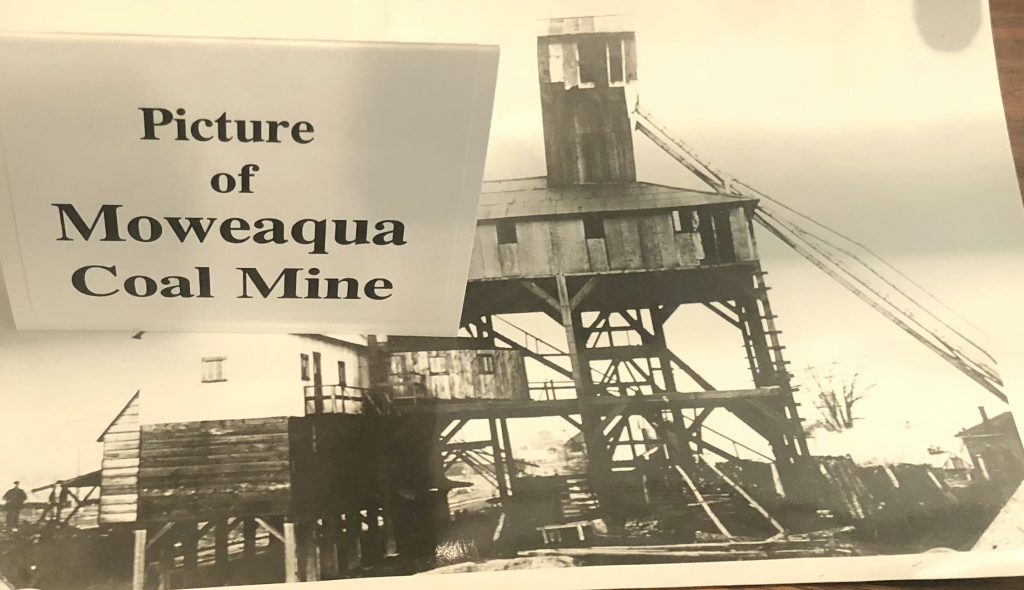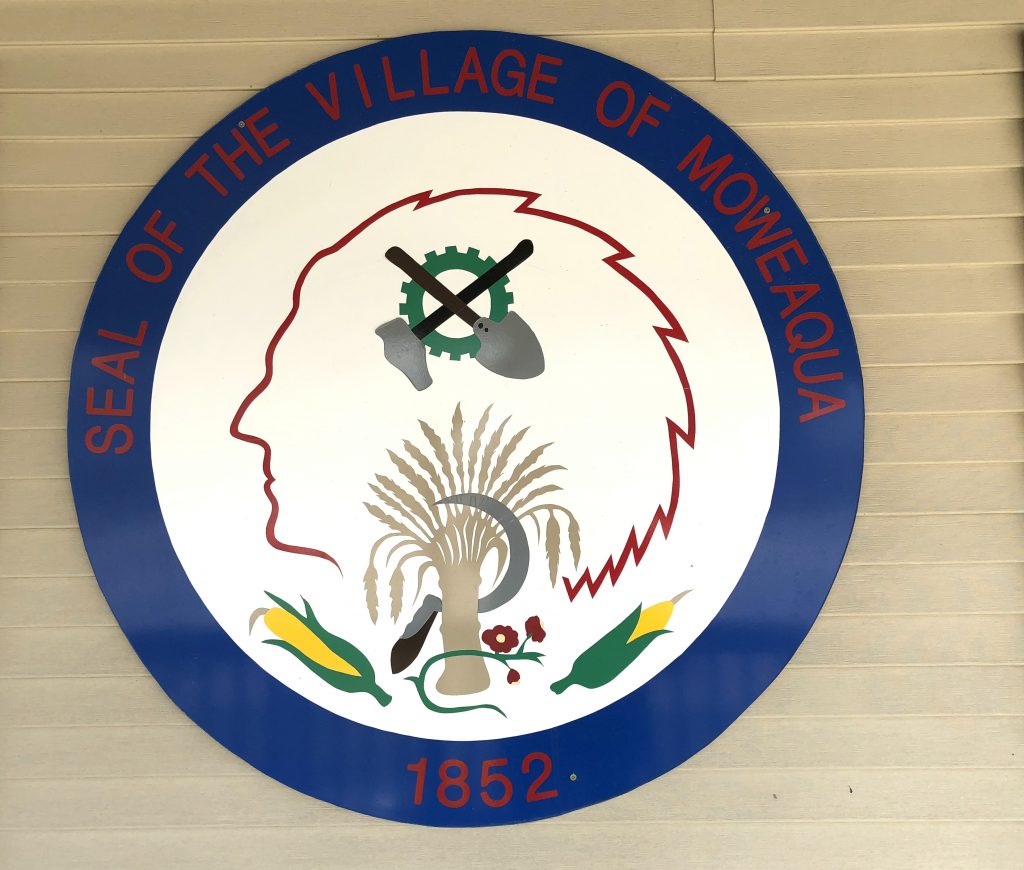Moweaqua was settled in the 1820s by pioneers who arrived with their ox-drawn wagons and built log houses on the prairie, clearing it so as to farm. It was a small settlement of just a few families until the discovery of coal in 1889 and a slowly growing interest in the seam by investors. The American Coal Mining and Manufacturing Company was active in Moweaqua at least by 1893. A group of local businessmen later formed the Moweaqua Coal Corporation. When the Progressive Miners of America union formed in 1932, breaking away from the United Mine Workers of America, Moweaqua’s miners went to the new radical union. The mine closed three years after the Christmas Eve Day disaster. Today there is no evidence of the coal mine in Moweaqua, but there is a memorial. In addition, Moweaqua has a coal mine museum with a collection of material related to the mine disaster and other aspects of coal mining in the town.

The name of the village is unique in the United States and Moweaqua’s slogan is “the one and only.” The name presumably has a Native American origin. The village seal depicts an Indian head in profile, coal mining tools, corn, and a scythe harvesting grain.

Today Moweaqua describes itself as being “defined less by boundaries on a map than by the sense of shared values our residents hold dear. Small town values, guided growth, preservation of historical, cultural, and natural heritage are just a few of the core principles that makes Village of Moweaqua a wonderful place to call home.” The village is attractive, with much of its vernacular townscape intact along its principal street and a significant commitment to recalling and honoring its mining past and those who sacrificed for the industry.

